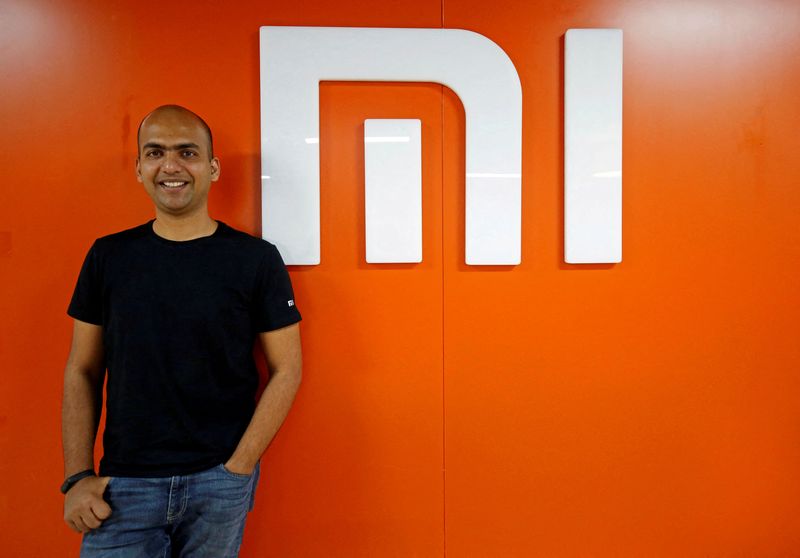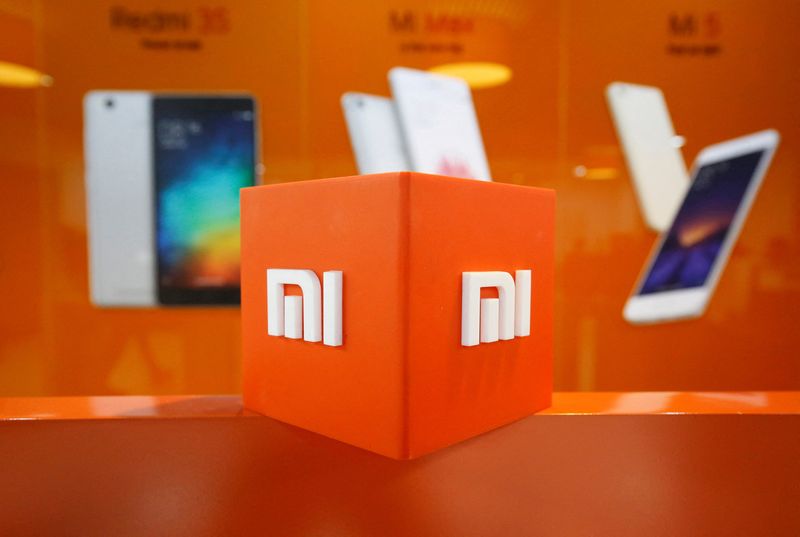By Aditya Kalra and Abhirup Roy
NEW DELHI (Reuters) - Chinese smartphone maker Xiaomi (OTC:XIACF) Corp has alleged its top executives faced threats of "physical violence" and coercion during questioning by India's financial crime fighting agency, according to a court filing seen by Reuters.
Officials from the Enforcement Directorate warned the company's former India managing director, Manu Kumar Jain, current Chief Financial Officer Sameer B.S. Rao, and their families of "dire consequences" if they did not submit statements as desired by the agency, Xiaomi's filing dated May 4 stated.
After the Reuters story was published, the Enforcement Directorate issued a statement saying Xiaomi's allegations were "untrue and baseless" and company executives had deposed "voluntarily in the most conducive environment".
Xiaomi has been under investigation since February and last week the Indian agency seized $725 million in the company's India bank accounts, saying it made illegal remittances abroad "in the guise of royalty" payments.
Xiaomi has denied any wrongdoing, saying its royalty payments were legitimate.
On Thursday, a judge heard Xiaomi lawyers and put on hold the Indian agency's decision to freeze bank assets. The next hearing is set for May 12.
The company alleges intimidation by the enforcement agency when executives appeared for questioning multiple times in April.
Jain and Rao were on certain occasions "threatened ... with dire consequences including arrest, damage to the career prospects, criminal liability and physical violence if they did not give statements as per the dictates of" the agency, according to the filing in the High Court of southern Karnataka state.
The executives "were able to resist the pressure for some time, (but) they ultimately relented under such extreme and hostile abuse and pressure and involuntarily made some statements," it added.
In its media statement, the Enforcement Directorate said it is a "professional agency with strong work ethics and there was no coercion or threat to the officers of the company at any point of time".
Xiaomi declined to comment citing pending legal proceedings. Jain and Rao did not respond to Reuters queries.
Jain is now Xiaomi's global vice president based in Dubai and is credited with Xiaomi's rise in India, where its smartphones are hugely popular.
Xiaomi was the leading smartphone seller in 2021 with a 24% market share in India, according to Counterpoint Research. It also sells other tech gadgets including smart watches and televisions, and has 1,500 employees in the country.
FIGHT OVER REMITTANCES
Many Chinese companies have struggled to do business in India due to political tensions following a border clash in 2020. India has cited security concerns in banning more than 300 Chinese apps since then and also tightened norms for Chinese companies investing in India.
Tax inspectors raided Xiaomi's India offices in December. On receiving information from tax authorities, the Enforcement Directorate - which probes issues such as foreign exchange law violations - started reviewing Xiaomi's royalty payments, court documents show.
The agency last week said Xiaomi Technology India Private Limited (XTIPL) remitted foreign currency equivalent to 55.5 billion rupees ($725 million) to entities abroad even though Xiaomi had "not availed any service" from them.
"Such huge amounts in the name of royalties were remitted on the instructions of their Chinese parent group entities," the agency said.
Xiaomi's court filing alleges that during the investigation, Indian agency officials "dictated and forced" Xiaomi India CFO Rao to include a sentence as part of his statement "under extreme duress" on April 26.
The line read: "I admit the royalty payments have been made by XTIPL as per the directions from certain persons in the Xiaomi group."
A day later, on April 27, Rao withdrew the statement saying it was "not voluntary and made under coercion", the filing shows.
The directorate issued an order to freeze assets in Xiaomi's bank accounts two days later.

Xiaomi has said in a previous media statement it believes its royalty payments "are all legit and truthful" and the payments were made for "in-licensed technologies and IPs used in our Indian version products".
Its court filing stated Xiaomi is "aggrieved for being targeted since some of its affiliate entities are based out of China".
